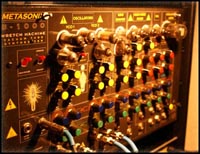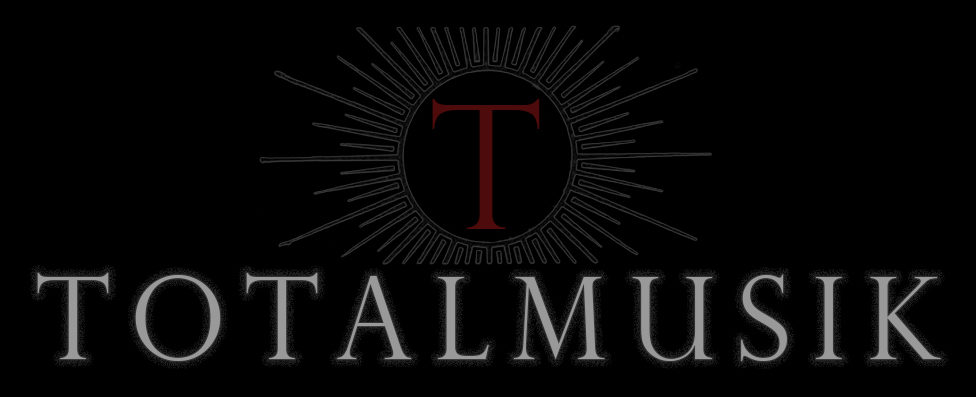Description
This is the culmination of years of planning and recording – Totalmusik’s first library focusing on the sounds of the Metasonix S-1000 Wretch Machine, the pinnacle of decades of advancement in Vacuum and gas-tube synthesizer design.
 The Metasonix S-1000 Wretch Machine is the only commercially available synthesizer to use gas-tube oscillators as the fundamental sound source. This technology predates most of the recognized synthesis advancements of the 20th century, and was abandoned in favor of integrated circuits. The waveforms generated by these gas-filled wonders of yesterday are a beauty unto themselves – wildly variable, inherently unique, and filled with atmosphere.
The Metasonix S-1000 Wretch Machine is the only commercially available synthesizer to use gas-tube oscillators as the fundamental sound source. This technology predates most of the recognized synthesis advancements of the 20th century, and was abandoned in favor of integrated circuits. The waveforms generated by these gas-filled wonders of yesterday are a beauty unto themselves – wildly variable, inherently unique, and filled with atmosphere.
At the helm of this recording is Michael Weeks, who has been involved with the S-1000 Wretch Machine since its inception. Brought to life at Metasonix with help from Michael’s constant prodding to create an integrated rack mount synthesizer, and named after his band The Wretch, Michael has clocked more hours behind the wheel of the Wretch Machine than anyone outside of Eric Barbour.
The goal of this library is simple: provide the most comprehensive and raw presentation of the heart of the Wretch Machine to sound designers via painstakingly recorded samples of its oscillators. Utilizing a scripted interface in Kontakt 4, we provide basic building blocks for sound designers to truly integrate these incredible waveforms into their studio environment.

TRACKING THE SAMPLES
For this library, no attention to detail was spared in capturing the true essence of this instrument. The Wretch Machine features a dual gas-tube oscillator configuration – each oscillator is switchable between three waveforms: Saw, Squarer and Subosc (squarer with suboctave).
We painstakingly sampled every single note of each waveform of each oscillator chromatically from C0-C5 (5 octaves), giving us 60 samples per oscillator, per waveform. Due to the unique tracking range and scale (the S-1000 requires a HZ/v CV as opposed to the much more standard V/Oct CV) we hand tuned EACH INDIVIDUAL NOTE of both oscillators for the truest pitch we could, extending the advertised 3 octave range to a full 5. The idiosyncrasies involved in manually tuning per pitch lend this library to slight pitch imperfections per note, which is captured in full in the library. Each note mapped across the keyboard is an individual sample, meaning a larger library size, but a much more robust, authentic and unique sounding emulation.
Below, you can see the raw waveforms as well as the resulting variations after being transferred to tape.
 |
 |
| SAW – Raw | Saw – Tape |
 |
 |
| Squarer – Raw | Squarer – Tape |
 |
 |
| Subosc – Raw | Subosc – Tape |
Here are audio demos of the above:
TO THE TAPE

Realizing that everything sounds better through tape, and our personal philosophy that “Old is Good, Old and Broken is BetterTM” – we enlisted the assistance of our TEAC Reel to Reel to handle our tape transfer needs.
No expense was spared – we have carefully kept this machine in “used” condition in our studio for several years, and due to a fierce hatred of breaking shrinkwrap on our last few rolls of Ampex 456, we have used the same transfer reel for the last year.
We painstakingly did a complete transfer of all of the raw waveforms, running them as hot and pure onto the abused tape as we could, and the results are stunning. “Warmth”, “Grit”, “Enhanced Mids”, “Smoothed Highs”, “Warble”, “Wow and flutter” and “Tape Dropouts” are some of the choice adjectives we can use to describe this subset of the samples. All imperfections of the transfer process are left intact, to further create uniqueness and specialness to this library.
With the Tape transfer process completed, we also went back and recorded the Saw waveforms to tape at 15ips, and then transferred back in at 7.5ips. This dropped the samples an Octave, creating an artificial Saw Suboctave for use in this sample set.
KONTAKT

Due to the raw nature of the samples, we felt the best way to present them was in an integrated sampler. We chose Kontakt due to it’s flexible nature and powerful scripting abilities. In the library, we provide you with several categories of starting points, and some programmed variations to get you running in no time. We also provide you with individual raw instruments as well as a multi with each waveform for purists who want to experiment with creating their own voice architectures.
Scripted Programs: These programs are set up in layers utilizing KSP scripts programmed by Brian Cass of Overclock, Inc.
RAW: These patches are provided as individual raw Kontakt Instruments. These can be used to build simple multis, or used on their own.
IMPULSE RESPONSES
As an added bonus, we have included some Impulse Responses which are usable within the Convolution Reverb in Kontakt. The primary device we created our IR’s from is a rackmounted Furman Spring Reverb – there are 6 different settings we sampled of various input levels and EQ settings. We also threw in some “unique” IR’s, for experimentation and exploration.
PRESETS
We have included a selection of additional presets based on the provided scripted library to show some ideas of what can be done with the raw samples. Below is a playlist with demo songs and preset samples from the libraries.




